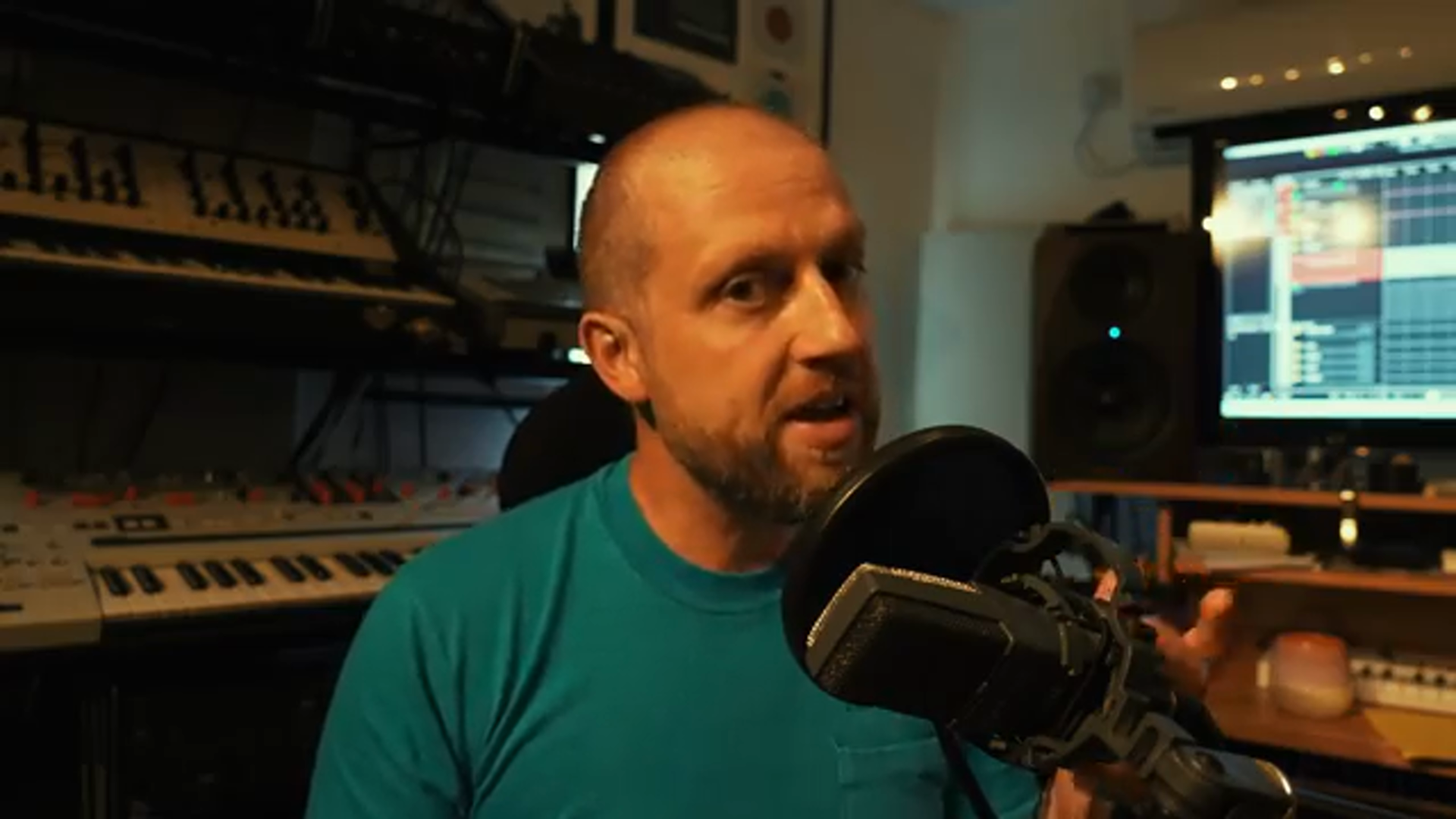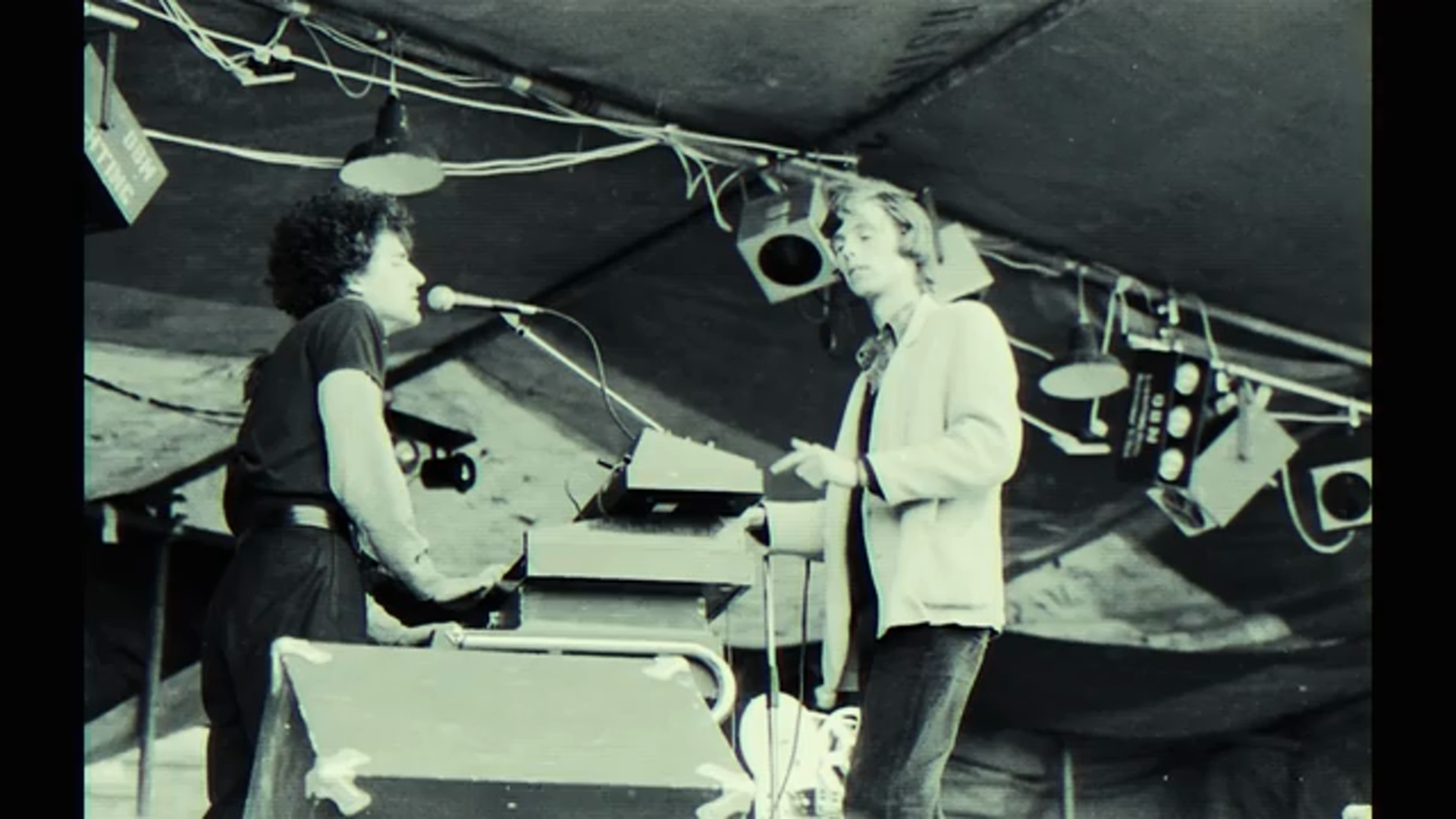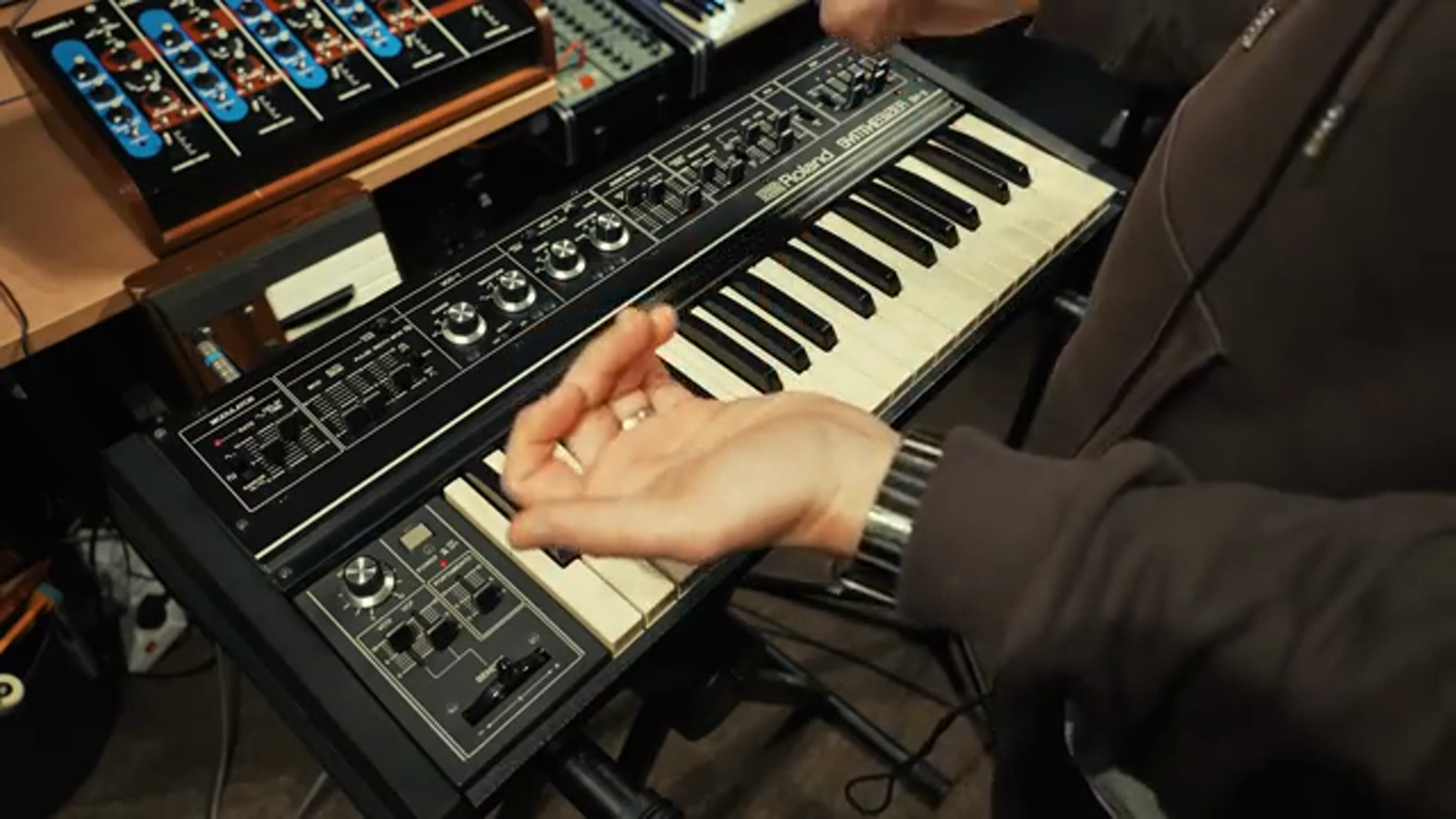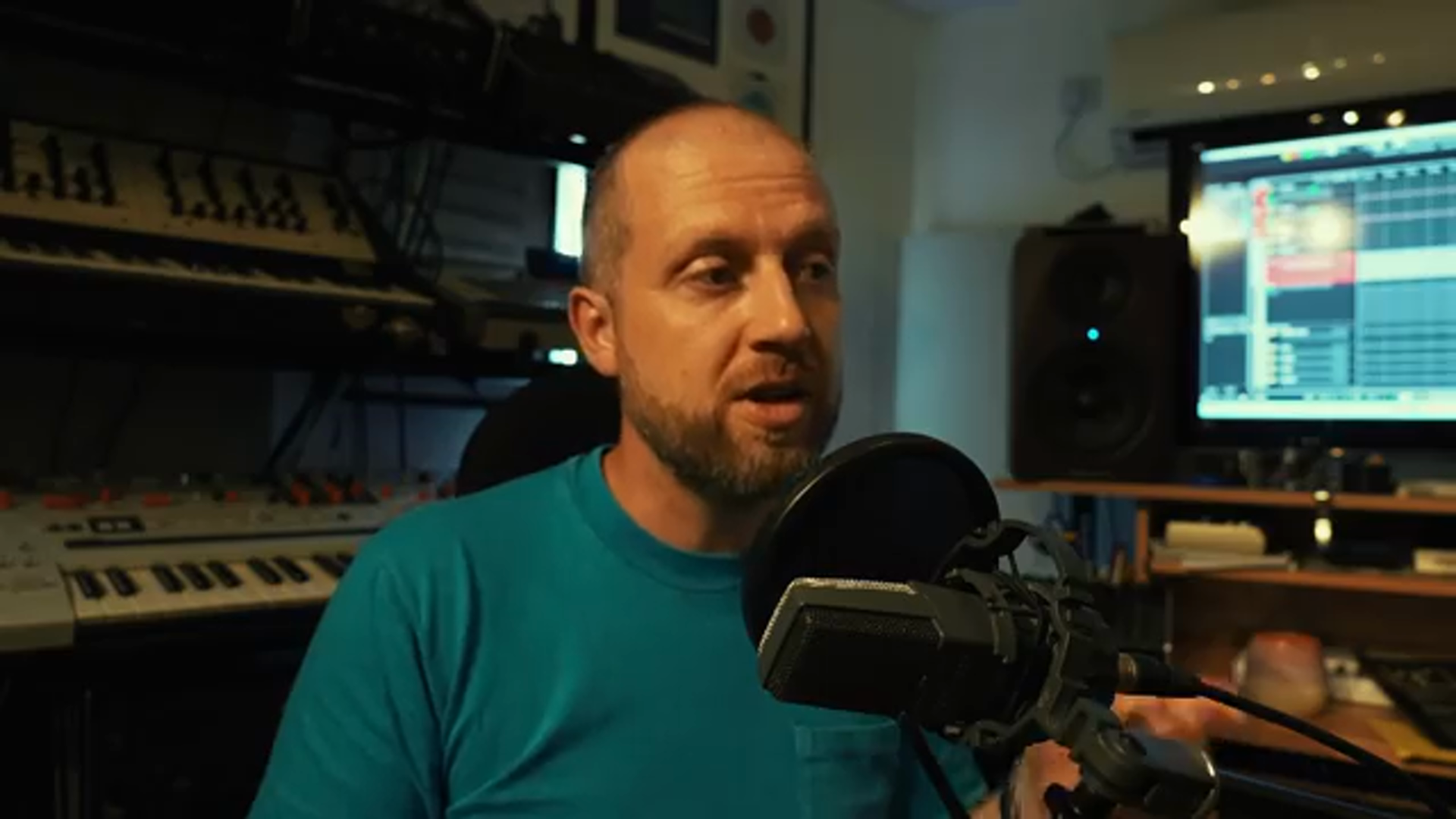Dive into the vintage soundscape of OMD’s ‘Enola Gay’ as AlexBallMusic unravels the synth secrets behind this iconic track. Discover the gritty charm of the MicroPreset and other synths that shaped the sound of an era.

20. June 2025
JET
AlexBallMusic Digs into the Synths Behind OMD’s ‘Enola Gay’
Elgam Symphony 200, Korg MicroPreset, Roland CR-78, Roland SH-2, Vox Jaguar
The Catalogue Conundrum
In an era where online shopping was but a sci-fi fantasy, the catalogue was king. Andy McCluskey’s choice of synths to breathe life into OMD’s ‘Enola Gay’ involved a curious selection, starting with the humble Korg MicroPreset. Found in the depths of a Littlewoods catalogue, this synth was the cheapest available, a curry’s worth of £7.76 per week over 36 weeks. Adjusted for today’s inflation, that’d cost a nifty £1,500. Simple, stripped-back, and slightly unwieldy, it was far from perfect, but it inspired that raw creativity which OMD thrived on. The presets were limited, offering brass, strings, woodwinds, and one bizarre setting that Alex cheekily dubbed a ‘cow’. With a bit of polyrhythmic finesse, the band squeezed the most out of this micro box, using manual octave switches to create roundabout sequences without a sequencer. While recording ‘Messages’, they stumbled over an accidental sharp pitch tweak, forcing them to transpose other parts, teaching us that necessity truly is the mother of invention.

"In the K's catalogue, you could get some synthesizers, including the Korg Micro Preset, and this is what OMD bought."
Rolling with Roland and Elgam

"Benj, over to you, mate. What makes this drum machine so special?"
While MicroPreset might’ve been OMD’s scrappy contender, they’d also taken on some Roland heavyweights – the SH-1, SH-09, and notably, the SH-2 for ‘Enola Gay’. One could almost say these Roland beasts are the pub bouncers to MicroPreset’s barmaid. Though recalled as their main player, discovering the specific sound sources used isn’t without hiccups. Add the Elgam Symphony 200 to the mix, an organ lending its polyphonic might to the track, or was it? Confusion reigned at a Liverpool exhibition claiming the Vox Jaguar’s involvement instead. Regardless, with a borrowed Vox Jaguar at hand, Alex kept us guessing. On percussion, the clandestine CR-78 made its mark, programmed by the wizard ‘Benge’, conjuring beats with a sustain pedal rather than Roland’s elusive WS-1 programmer – because who likes things that make sense? The collaboration with drummer Jonathan Wills further blurred lines with single-drum tracking, an approach that adds layers to OMD’s sonic sculpting, embracing chaotic accidents as happy artistic flukes.
Chasing Workaday Wonder
Rarely do such humble beginnings get to stardom, but OMD’s synth setup was forged from the mundane. The idea that such twee, borderline naff sounds could become anthemic seems odd, but Alex illustrates how these sloppy, cheap sounds defined an era. The crux was transforming the MicroPreset’s lacklustre tones with the Roland SH-2 to fashion sounds that truly propelled them. Through meticulous studio trickery, minor details emerged – synchronising synth parts that didn’t quite match and were played differently across respective layers. A difference you’d never detect unless you were a sonic detective scrutinising every inch of tape. And when talking about the bass, Alex manages to blend organic and synthetic effortlessly. With the SH-2 again lending its heft to the dynamic lower end, alongside a cheekily played, upside-down bass guitar, these juxtaposed tones merged to create an unorthodox yet compelling foundation. Such creativity showcases how hitting the high notes is about more than just skillful playing.

"It's gotta be one of the worst keyboard sounds ever. But obviously it doesn't sound like that on the record."
Effects, the Secret Sauce

"So you can hear that it widens and thickens the sound quite dramatically to start with."
In the smoke and mirrors of audio production, effects play the cunning role of illusionist. Ridge Farm Studio was the stomping ground where OMD squeezed the juice from its synth fruit. With an Eventide H910 harmoniser leading the charge, crafting those soundscapes meant twiddling with the sonic palette in adventurous ways. Described as ‘ramming the noise’ through the harmonisers, the result was anything but subtle. Let’s just say the Eventide was the punk gig of effects—a chaotic harmony of sharp and flat pitches that broadened the sonic horizon. A testament to lo-fi solutions with hi-fi results. Reverbs weren’t left behind either. From springy AKG BX10s to elusive EMT plates, they approached things with curious gusto. Perhaps such hidden details are whispers in the sonic storm, but as Alex demonstrates, it’s the textural contrast that these effects provided which polished their rough diamonds into slick tunes. In his whimsical style, Alex reveals how these layers, paired with raw recorded sounds, birthed anthems like ‘Enola Gay’, keeping its ingenious spunk intact.
Synth Nostalgia, Lessons Learned
Summarising his synth quest, Alex takes us on a nostalgic journey, appreciating how OMD harnessed basic gear to form grand sonic feats. The takeaway? That even when temperamental, raw gear still packs a punch. You can toss these sounds through all manner of harmonisers and reverbs, but if the core idea lacks oomph, it’s like trying to polish a dodgy kebab – futile and unappetising. Enmeshing catchy melodies with these synth choices, OMD proved the power of creative constraints. Great ideas trump fancy equipment, and having resourceful members who aren’t afraid to push aside manuals helps too. Alex generously thanks collaborators while punctuating that it’s the fusion of simple, scrappy equipment with a visionary approach that immortalised ‘Enola Gay’ among synth anthems. It’s proof that sometimes, the shoddy toaster having a breakdown can bake the sweetest loaf of all.
Latest articles
Watch on YouTube:
https://www.youtube.com/AlexBallMusic
Links from AlexBallMusic:
Sponsored links:
If you purchase via these links, we may earn a small commission – at no extra cost to you.
🔗 Check price on Amazon
🔗 Check price on Amazon